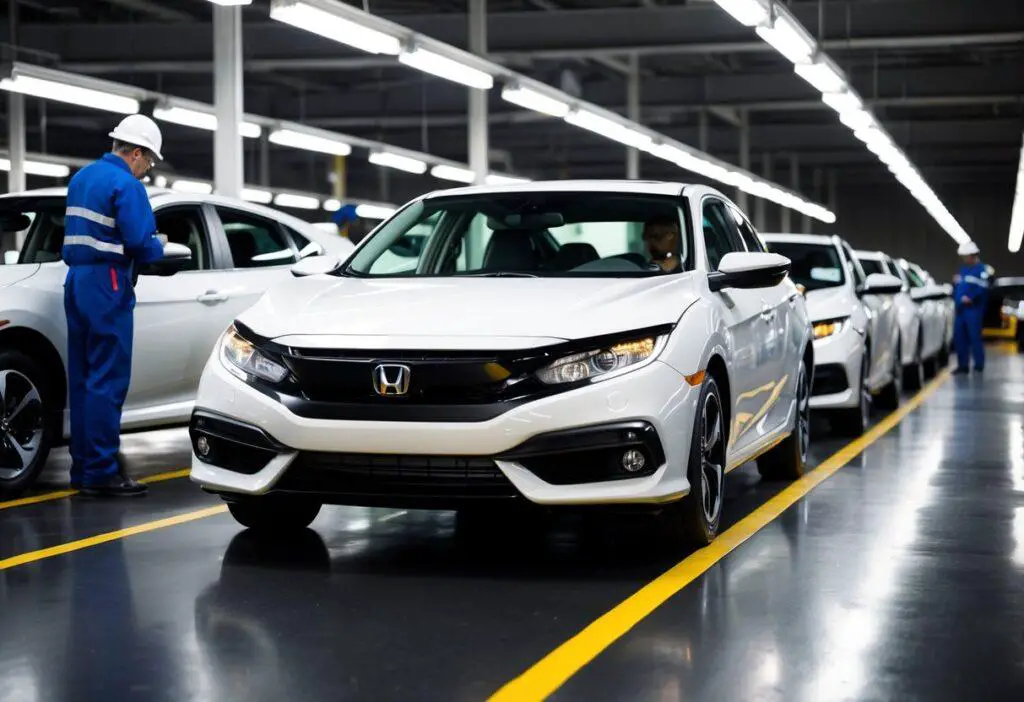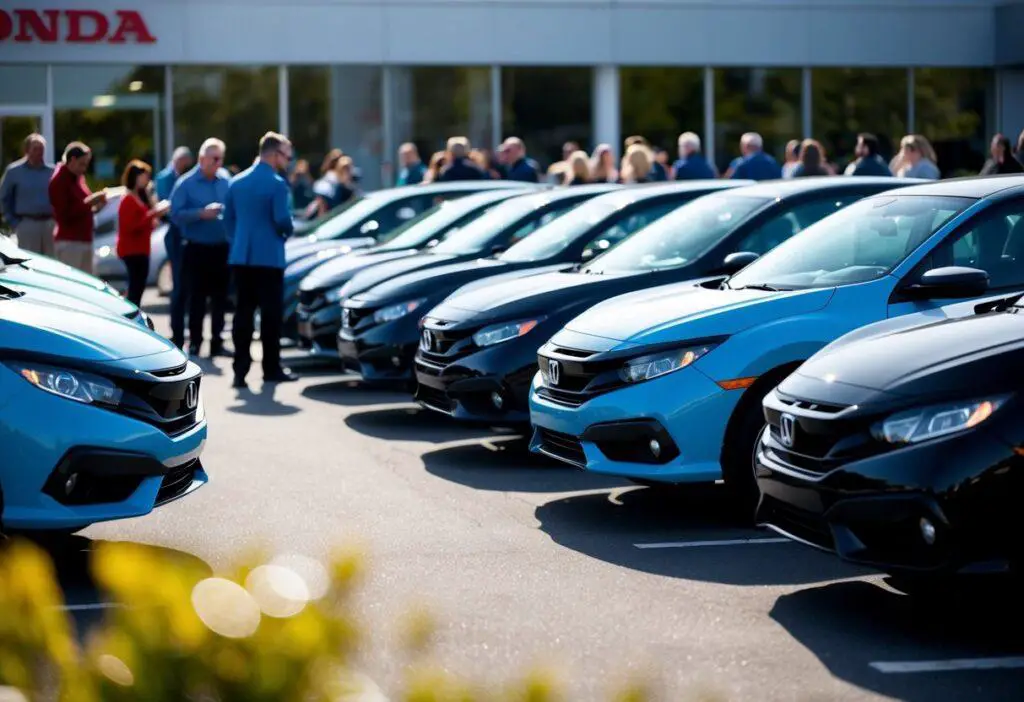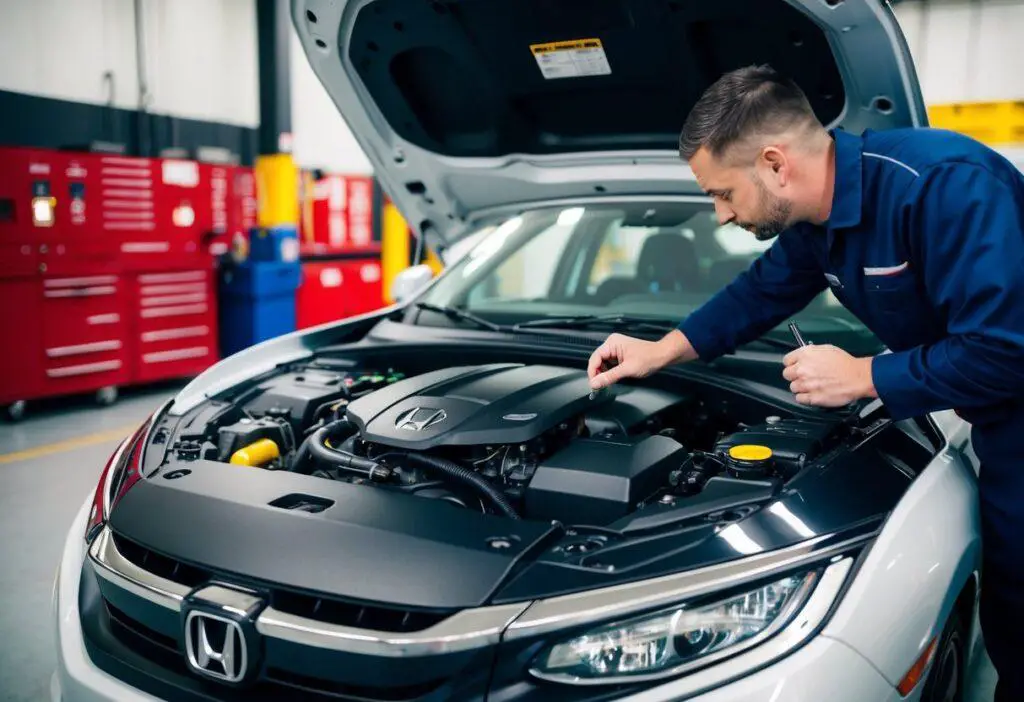Reports are emerging of a 2025 Honda Civic recall and owners are concerned. While details are limited, industry insiders are watching as Honda addresses possible safety or performance issues with their new Civic.
Honda hasn’t announced the full extent of the recall yet but preliminary info suggests it’s related to components found during quality testing. Timing is interesting as the company is adapting its lineup to meet stricter emissions standards and new tech for 2025-2035.
This follows a pattern in the industry where manufacturers address potential issues before they become big problems. Honda’s approach to this recall will impact customer confidence and the competitive landscape in the compact car segment where the Civic has always been a strong player against the Hyundai and Toyota offerings.
Jump To
2025 Honda Civic Recall Background

The 2025 Honda Civic recall is a big deal for the car that’s built in the US. The recall is due to safety concerns found through internal testing and customer reports.
What’s the Issue
Honda first became aware of the problem in January 2025 when their quality control team found anomalies during routine testing. The issue affected certain 2025 Civic models with the Honda Sensing package.
Engineers found a software glitch in the collision mitigation braking system that could cause unpredictable braking under certain conditions. This happened when vehicles were traveling 45-65 mph and approaching metal objects like guardrails or big trucks.
Internal testing showed the faulty sensor could misinterpret roadside objects as collision threats and trigger emergency braking. About 78,500 vehicles built between October 2024 and February 2025 were affected by this software bug.
Official Recall Announcement
Honda announced the recall on March 15, 2025, through press releases and direct mail to registered owners. NHTSA assigned recall number 25V-187 to the campaign.
The announcement said all affected owners would receive notification letters by April 10, 2025. Honda set up a website and hotline for customers to check if their vehicle was included in the recall. No accidents or injuries have been reported. But owners should exercise caution until repairs are done.
Dealers will update the Honda Sensing software for free and it will take about 45 minutes per vehicle. This recall shows Honda’s commitment to safety and proactive problem-solving.
Recall Scope and Impact
The 2025 Honda Civic recall affects a lot of vehicles across many regions due to safety concerns. Owners need to know the extent of this recall to determine if their vehicle needs attention now.
Affected Models and Regions
The recall is for 2025 Honda Civic sedans and hatchbacks built from January to March 2025. About 83,000 vehicles in North America are affected, 62,000 in the US, 14,000 in Canada, and 7,000 in Mexico.
Models with 1.5L turbo engines are most affected, but some 2.0L naturally aspirated models are also included. Sport and Touring trims are the majority of affected vehicles.
The recall goes beyond North America to:
- 16,000 units in Europe
- 12,500 units in Asia-Pacific markets
- 8,000 units in South America
Owners can check if their vehicle is included in the recall by visiting Honda’s dedicated website and entering their Vehicle Identification Number (VIN).
Consumer Risks
The recall is due to a manufacturing defect in the brake system that can cause reduced braking over time. The defect is in the brake master cylinders that were not manufactured properly and may develop internal leaks.
Early signs owners may notice:
- Longer brake pedal travel
- Soft or spongy brake feel
- The brake warning light on
In severe cases, the defect can cause longer stopping distances and increase the risk of accidents. Honda has confirmed three minor accidents potentially related to this issue but no serious injuries have been reported.
Continued driving with this defect may cause progressive degradation of braking performance. The risk is higher in demanding conditions like downhill driving or when carrying heavy loads.
Consumer Information
Owners affected by the 2025 Honda Civic recall need to know what to do and what to expect. Manufacturers and dealerships have specific responsibilities to address safety concerns quickly.
Honda will mail recall notices to registered owners. Don’t ignore these notices as they contain important safety information.
Contact your local Honda dealership to schedule a repair once you confirm your vehicle is affected. Keep all documentation related to the recall and repair.
Monitor for updates on the recall through Honda’s customer service channels or the NHTSA website. Repairs for safety recalls are free of charge to consumers regardless of vehicle age.
Dealership and Manufacturer Obligations

Dealerships must do the recall repairs promptly and at no cost to the vehicle owner. They must have trained technicians to address the specific issues in the recall.
Dealers must provide clear information on the repair process, including estimated time to complete. They must also offer alternative transportation if repairs will take more than one day.
Honda as a manufacturer must:
- Notify all registered owners by mail
- Describe the defect
- Explain the safety risk
- Outline the repair solution
- Pay for all costs related to the recall repair
The company must report completion rates to the regulatory authorities and make ongoing efforts to reach owners whose vehicles haven’t been repaired.
Recall Details
The 2025 Honda Civic recall addresses safety concerns affecting about 340,000 vehicles in North America. The issues are in the braking system and electronic control unit.
Defects and Faults
The recall targets two defects in the 2025 Honda Civic models. First, engineers found a manufacturing defect in the brake master cylinder where contaminants created microscopic cracks during production that could expand under pressure. These cracks can cause brake fluid leakage and reduce braking by up to 40% in extreme cases.
Second, the electronic control unit (ECU) has a software bug that misinterprets signals from the anti-lock braking system sensors. This glitch can trigger the stability control system to activate when driving 45-60 mph, especially during lane changes. Testing showed about 12% of affected vehicles have intermittent warning light activation for these issues. Honda’s quality team found both problems occurred during a specific production period from November 2024 to February 2025.
Fixes

Dealers will do a two-part repair at no cost to the owner. For the brake master cylinder issue, they will replace the entire component with an updated version with better materials and quality control. This takes about 1.5 hours.
For the ECU problem, they will install new software that corrects the signal interpretation algorithm. This takes about 30 minutes and includes additional diagnostic improvements to prevent similar issues in the future.
Honda is prioritizing parts to dealerships in regions with the most affected vehicles. Owners can schedule appointments starting April 15, 2025, and Honda estimates all repairs can be done within 90 days.
The National Highway Traffic Safety Administration has approved the repair plan and will monitor completion rates through quarterly reports from Honda.
Impact on Honda
The 2025 Honda Civic recall is a big problem for the company beyond the immediate logistics. Honda faces short-term reputation damage and must develop long-term strategies to regain consumer trust.
Brand Reputation and Market Impact
The recall comes at a bad time for Honda as they were positioning the 2025 Civic as a flagship model. The recall may cause potential buyers to rethink their purchase and potentially lower sales for the quarter.
The financial impact will go beyond just recall repair costs. Analysts predict stock price volatility as investors react to the news.
Honda’s competitors will likely capitalize on this opportunity to promote their own vehicles’ reliability, especially other Japanese brands that compete in the compact car segment.
Dealerships are seeing more customer inquiries about other Honda models, indicating potential spillover to the rest of the product line.
